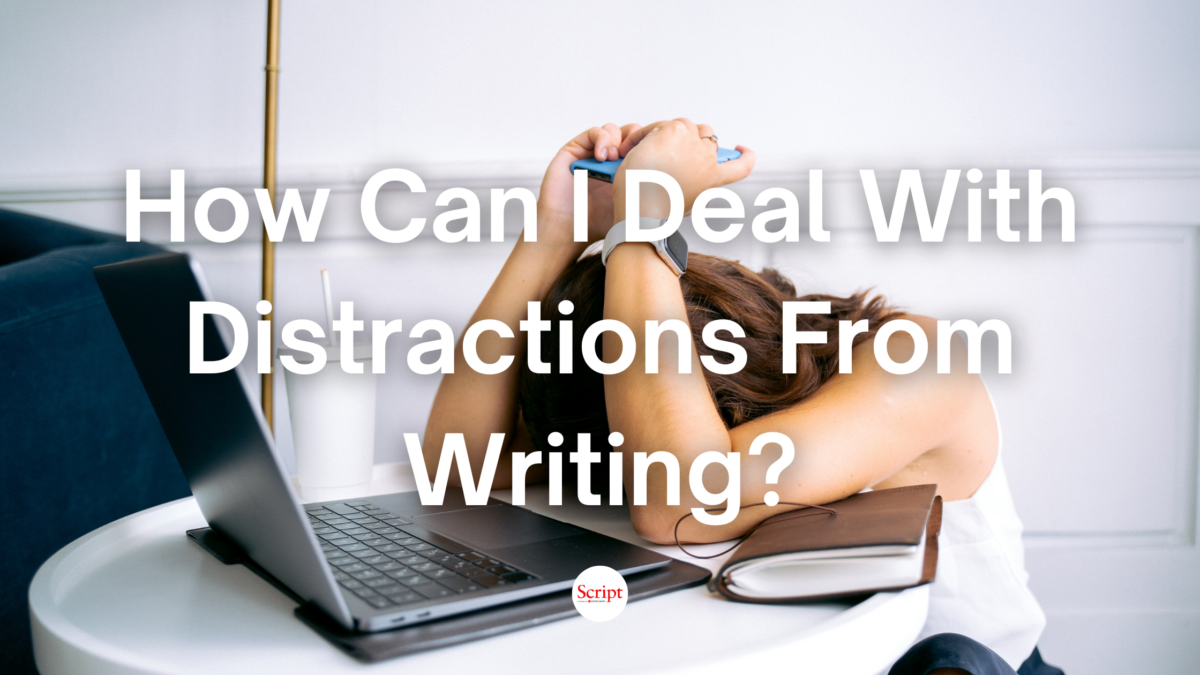How Can I Balance Writing with (a Busy) Life?
Writing coach and Called to Write founder Jenna Avery responds to readers about balancing writing and life.
Welcome to “Ask the Coach.” As a writing coach, I answer questions from writers about making the work of writing happen, tackling craft, business, and personal questions along the way. (Have a question you’d like answered? Check the details at the end of the article about how to submit one.)
Today I’m responding to two readers in response to their submissions to a recent reader survey I conducted.
Their comments and questions coalesced around balancing writing with the rest of a busy life:
“I am struggling with balancing writing with life. I know what I need to do but similar to dieting, there is bingeing then over-compliance. It’s hard to make the habit work with so much to do.”
“I’ve not written in a LONG time — it feels like life events overwhelm me — I’m just not motivated.”
Especially if writing is an optional endeavor—at least in the sense that we’re writing on spec and not being paid (yet!) to write—it’s not easy to balance with the rest of life. Even professional working writers can find writing swallowing up or at least significantly impacting their personal lives, from what I’ve seen.
Let’s talk about a few approaches you might consider.
Challenges
Let’s start by reviewing the challenges our writers are bringing to the table.
1. Binge writing.
First, let’s talk about binge-writing, which has a number of unwanted side effects, even while it can feel exciting in the moment.
I see binge-writing as a symptom of resistance, odd as that may seem. If you’re struggling to write, and suddenly put on a big burst of speed writing, it can be a result of finally breaking through any fear causing you to avoid writing. Then it feels like you can’t stop because the fear will kick in again (which is accurate!) so you write and write and write.
It is such a huge relief to have a big flood of writing come pouring out after avoiding, procrastinating, resisting, or feeling blocked that you just don’t want to stop.
And even if you’re the rare writer not struggling with fear, the results of binge-writing can be the same.
The downside of binge-writing is the consequences. Sometimes after binge-writing, writers feel highly satiated so they take a break from writing for a day or two—which is fine, generally—except when it leads to avoiding writing or putting writing off for an overly long time and it becomes so much harder to restart.
Writers may also exhaust themselves by binge-writing, leading them to feel averse to writing again at all.
This is why I see binge-writing as a form of resistance—it’s almost like we can only give ourselves permission to write in a big, mad, rush, rather than taking it seriously (too scary!) and as something we want to be doing on a regular basis in the long term.
2. Strict over-compliance.
Next, “over-compliance.” I think you mean that you’re overly complying with a very strict writing habit instead of binge-writing, or perhaps you simply mean you’re not writing at all.
If the former, I suspect the issue is that it feels too strict, and is therefore painful, stressful, and draining. Not a whole lot more fun than binge-writing itself.
3. Lack of motivation.
Let’s also talk about motivation. Our second commenter observed that feeling overwhelmed by life events erodes their motivation. Absolutely! When we’re in an overwhelmed, burned-out, or exhausted place in our lives, it’s quite difficult to find the energy, passion, and motivation to tackle an “extra” thing, whatever it is.
And writing, like other acts of self-improvement, ask us for a level of commitment, drive, motivation, and executive decision making that can be hard to muster up when we’re in a depleted state.
Plus, we need a fair amount of time to properly develop and execute our stories, so there’s an investment of time and energy we need to make in order be successful.
Solutions
Let’s explore some possible strategies and solutions to consider when dealing with a busy life, a propensity to binge, avoid, or overly comply, and a lack of motivation to write.
1. Structure.
Much like a screenplay benefits from a proper structure, so do you as a writer. Structure is a container for a story. A writing practice is a container for your writing. It makes a place for writing to be a part of your life. If you don’t have this kind of structure, or container, you have to struggle daily with the “when” and “if” of writing, rather than it being a given. A writing practice creates a safe space for your writing. If you don’t make one, it won’t show up, and neither will you. In the past I’ve also called this sacred writing time.
You get to decide what this looks like, in terms of when, where, and frequency. If you’re looking for a place to start, consider writing four or five to seven days per week for a small amount of time each session, at a time of day when you tend to feel more energized and your critical self is at it’s quietest. Often this is early in the morning or late in the evening but it can vary from writer to writer.
2. Rock bottom minimum writing targets.
Another tool to experiment with is “rock bottom minimum” writing targets. What this means is establishing—for yourself—what your minimum writing goal is for each writing session or day. You can also consider other time periods, like weeks, months, years, to help set your targets.
This can look like something as simple as 15 minutes per writing session. (I wrote a script in six months this way during an exceedingly painful and busy phase of my life.) It could also revolve around page counts, though I prefer time goals for writing because so much of writing is rewriting, which often involves cutting pages and words, thereby potentially shortening the work and not meeting the goal even when you’ve successfully applied butt to chair to do the work.
3. Not to exceed guidelines.
You may also consider establishing “not to exceed” guidelines for yourself if you’re prone to binge-writing. In other words, you might decide you won’t write for more than four hours per day (or two, etc., whatever is the right fit for you).
There are real advantages to ending your writing sessions on a high note, when you’re feeling upbeat and energized by your writing—mainly because it invites you to come to writing for your next writing session in a positive space. There’s also an advantage to leaving an unfinished edge to your writing; it makes it easier to jump back in.
4. The passion rule.
Something that fascinates me is how writing can beget more writing. In other words, when we are writing regularly, our minds are engaged with our stories, and keep mulling them over in the backs of our minds between writing sessions. And the more consistently we write, the more energy and motivation can arise to help us keep going.
What I find is that the passion and motivation often follow the action, rather than the other way around.
5. Three big rocks.
Last but not least, where is writing on your spectrum of things that are important to you? Many moons ago I wrote a piece about finding your three big rocks. It’s a simple idea, the core of which is that we absolutely have to prioritize what we care most about and is most important to us first before all else. So often we agree to things we don’t really want to do because we think we should, or other people want us to do them, or we feel obligated or guilty, but at the end of your life, will you be glad you chose those things?
I know I’ll be grateful for focusing on my kids—including volunteering at their school libraries—forever and always. Same with my health and well-being, and writing. Now you know what my three big rocks are. Everything else has to come later.
That’s a Wrap
when you know what to do, but you’re not doing it, ask yourself why. Sometimes it helps to sit down with yourself and get very clear on how important writing is to you. If it’s important, make time for it, even if it’s in small ways. Fifteen minutes a day adds up to a lot over time. Three or four hours a week does as well. Give yourself the gift of structure and support to help make it happen. And don’t be afraid to create and use writing targets and limits to help build that safe space and structure.
You may also like:
Screenwriters, what challenges and blocks are you wrestling with right now? Share them with me for support and suggestions, take the survey, or email me directly at support@jennaavery.com. Look for answers to selected questions in the monthly “Ask the Coach” column on the third Thursday of the month.
Find me on Bluesky: @jennaavery.bsky.social.







